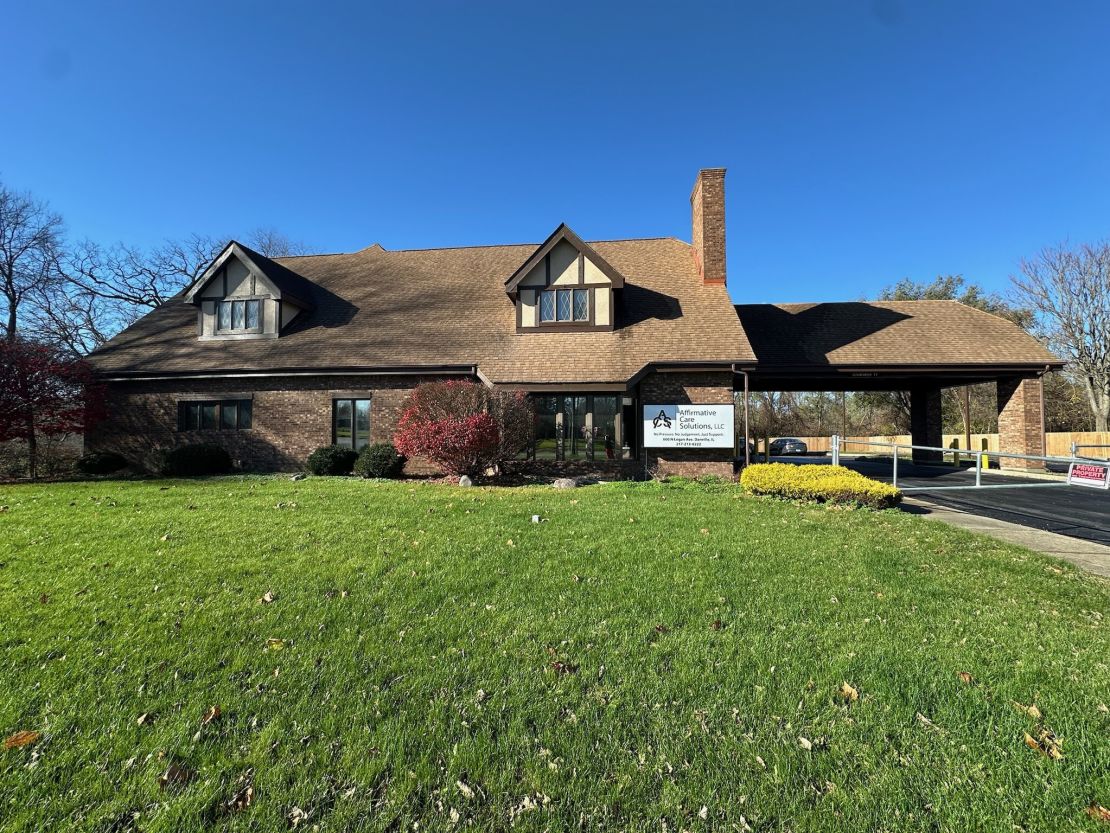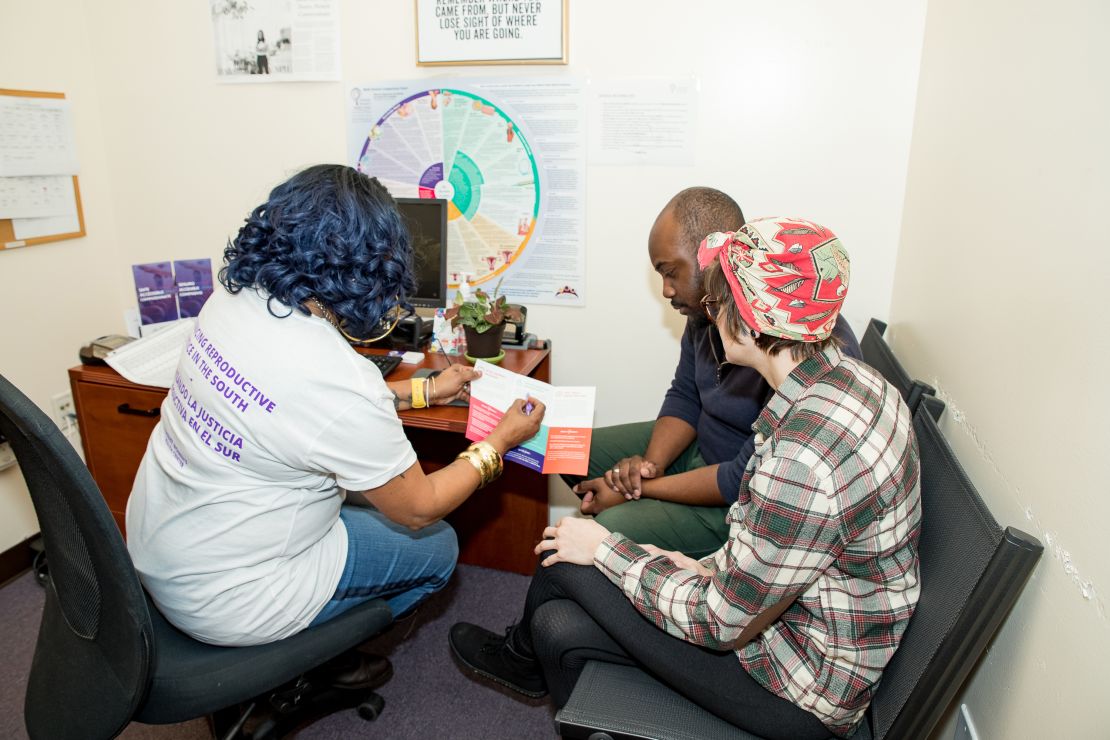Illinois has become a key access point for people who have to travel to get an abortion; it has welcomed more out-of-state patients than any other state, according to one estimate. The new location of Affirmative Care Solutions in Danville is just about an hour from where it was before. Prince said she chose the location to keep the commute manageable for her staff and as convenient as possible for patients facing new barriers to care.
But Prince said she encountered a surprising new reality for abortion clinics: The local community can significantly affect how providers deliver care, even in states where abortion is legal and protected — and providers are beholden to their neighbors in ways that go beyond the direct letter of the law.
Abortion providers say that hostility from the local government and community members has made it nearly impossible to get the new clinic up and running.
Voters in Danville lean more red compared with the state overall. In May 2023 — months after work on the new clinic began — the Danville City Council approved an anti-abortion ordinance with a supporting vote from the mayor. State law supersedes local policy, so the ordinance can’t be enforced, but to Prince, the animosity came through loud and clear.
A string of setbacks have delayed the opening of the new clinic indefinitely. Some local contractors have backed out of work at the new clinic location in Danville because they don’t support abortion rights, Prince said. It has taken nearly a year to find a plumber willing to provide services. And a violent attack in which a local man crashed his car into the building and tried to set it on fire causing about a half-million dollars in damage.
“It’s not necessarily just a statewide welcome mat,” Prince said of the conflict in state laws and local reception at a webinar last month. “It doesn’t matter if you go into a state where abortion is still legal and welcomed. It just depends on what’s going on in that community.”

CNN reached out to local leaders in Danville to understand the intent behind the 2023 ordinance and the rights that an abortion clinic can expect as a business in the city but did not get a response.
In the 2½ years since the US Supreme Court’s Dobbs decision revoked the federal right to an abortion, abortion has been banned in more than a dozen states and heavily restricted in others.
At least 76 independent abortion clinics have closed in that time, according to a recent report from the Abortion Care Network – but nearly half of those closures have been in states where abortion is still legal, including three in Illinois.
“In states where abortion remains legal, medically unnecessary restrictions, financial barriers, and the constant threat of anti-abortion extremism make it challenging for clinics to keep their doors open,” says the report from the Abortion Care Network, a national association for independent abortion clinics and supporters.
The Dobbs decision left abortion policy up to the states, but a clinic’s community can significantly affect how well providers can deliver care and patients’ ability to access it, experts say.
“Local support has always been important to abortion access. Post-Dobbs, this support has only become more important as the political and access landscape is constantly shifting,” Brittany Fonteno, president and chief executive officer of the National Abortion Federation, a professional group of providers, said in an email.
“Even where abortion is legal, clinics need support and protection from systemic issues that impede their operations, such as violence and protests from anti-abortion extremists, criminalization of providers and patients, and budget constraints – to name a few.”
Days after the Dobbs decision was handed down in June 2022, City Hall in Beverly Hills, California, lit up pink to protest the decision. The City Council had also just unanimously passed a resolution marking its commitment to abortion rights.
The prominent displays of support from an easily accessible community in one of the country’s largest metropolitan areas in one of the most protective states were welcoming signs for Dr. Matthew Reeves. The founder of DuPont Clinic – an all-trimester abortion clinic that has operated in Washington, DC, for about seven years – was interested in expanding the practice’s reach to more patients post-Dobbs, and Beverly Hills seemed like “the next logical place,” he said.
“It came down to where we could find a good location in a place that was willing to rent to us and what we thought was a friendly local government,” he said. “But we were wrong.”
After anti-abortion activists’ protests at the new clinic’s site and city council meetings, the local government failed to defend the new clinic – and interfered with community relationships instead, clinic leadership says.
The Beverly Hills City Council threatened to send a letter to all tenants of the building where the new clinic had planned to open, warning them that they would be at risk of violence with an abortion clinic as their neighbor, the California attorney general said in a news release in October. And the DuPont clinic’s new landlord, who had previously been supportive, ultimately rescinded the lease.
The clinic sued the city and its landlord, but progress on the construction has stalled, and there are no immediate plans to continue.
The attorney general’s news release also said that the state’s Department of Justice found that the city of Beverly Hills “unlawfully interfered with DuPont’s opening by improperly delaying the issuance of building permits and actively engaged in a pressure campaign against the property owner.”
The City of Beverly Hills moved to dismiss the majority of DuPont Clinic’s claims, and last month, a Los Angeles County Superior Court judge upheld that motion.
“We are pleased that the Court has vindicated the City’s position through a neutral evaluation of the evidence,” Beverly Hills Mayor Lester Friedman said in a statement. “As the City has indicated time and again, it vigorously supports a woman’s right to choose and the decision to rescind DuPont Clinic’s lease was not made by the City of Beverly Hills. We welcome future medical facilities that offer complete reproductive health services to Beverly Hills.”
The right to an abortion is determined at the state level, but local policies and neighborhood rules – such as control over required permits, zoning laws and noise ordinances – can indirectly affect the ability to provide and access that right.
“For years, municipalities across this country have used permitting power and governmental pressure campaigns to quietly prevent clinics from opening and thus limiting abortion access, even in California, which holds itself up as an abortion access state,” DuPont Clinic said in a statement in November.
For these reasons, abortion clinic leaders say that local law enforcement can be one of the most important community allies, potentially bolstering safe and legal access in states that have more restrictive laws.
Georgia restricts abortion past the sixth week of pregnancy, which has severely limited access to abortion care in the state. Kwajelyn Jackson, the executive director of Feminist Women’s Health Center in Atlanta, knows that even the most progressive community can’t override state law – but she can build on the support she has from her neighbors and local government to help make it as easy as possible within the boundaries that exist.

“The thing you’re mad about, the thing that you want to shake your fist at, there’s likely a person or a body or an agency that is in charge of that, and it may not be the people you think,” Jackson said. “If we are concerned about the protesters using microphones and speaker systems, what is the noise ordinance? Who are the people who enforce that, and who do we need to talk to to make sure that we understand exactly what’s required for us to protect our block?”













